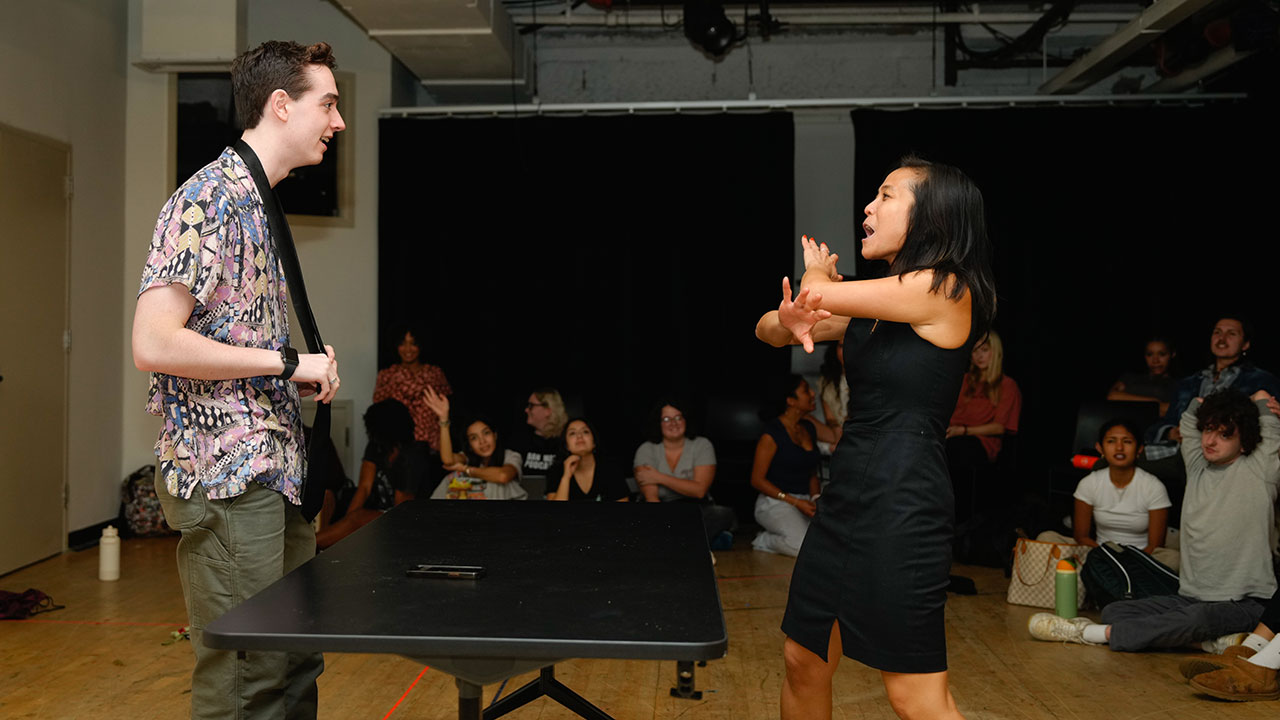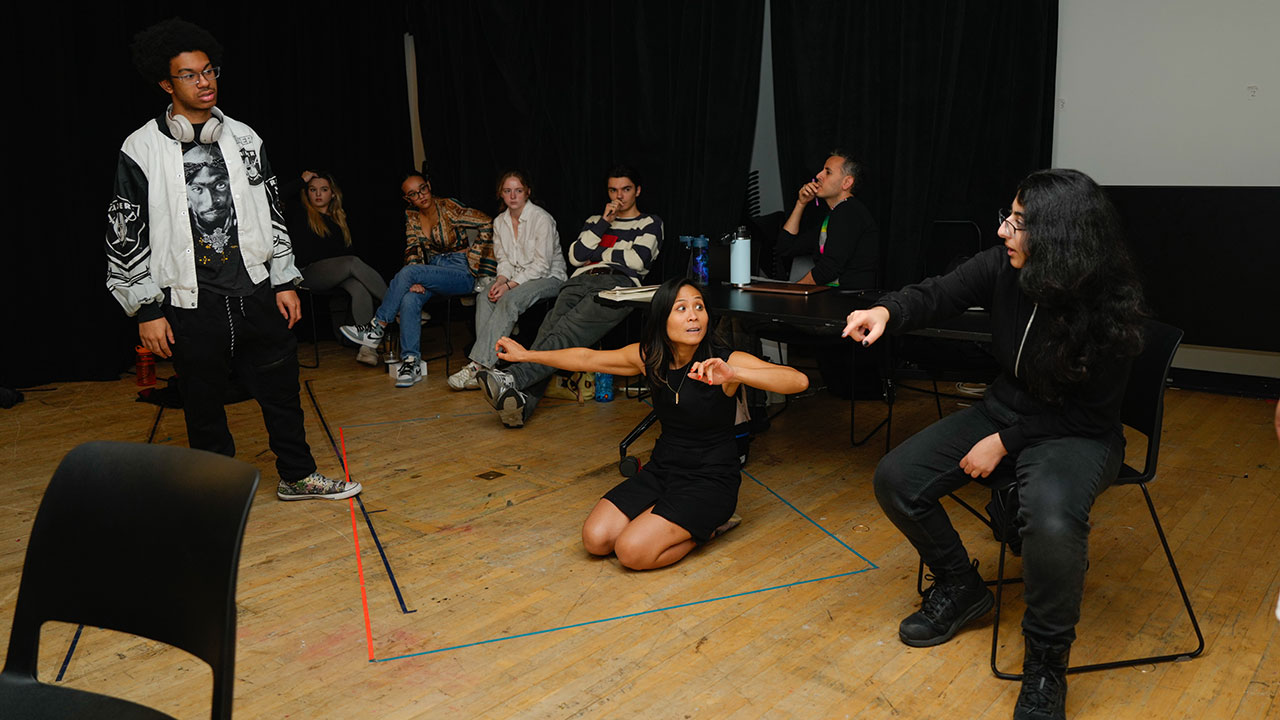Only at Fordham: All in on Theatre Collaboration
 May Adrales (right), director of Fordham Theatre, teaches Collaboration to first-year students in the program. Photo by Hector Martinez
May Adrales (right), director of Fordham Theatre, teaches Collaboration to first-year students in the program. Photo by Hector Martinez
Fordham Theatre students are admitted to the program for their brilliance and potential within a single concentration—performing, design and production, playwriting, or directing.
Their first assignment upon arrival? Try something else.
What Makes This Class Distinctive
The cornerstone of Fordham Theatre, Collaboration is a yearlong course that brings together first-year students regardless of their concentration. It is the only class taken by all members of the cohort at the same time.
A workshop class at heart, the course is designed to provide students with the communication, critical thinking, and creative problem solving skills they need for effective and meaningful collaboration.
Each week begins with a lecture on some aspect of acting, directing, writing, or design. Then students are split into groups to create and perform short pieces that will be critiqued by their professors and classmates. These feedback sessions focus not only on the work itself but also—crucially—on how it comes together. Disagreements and differences of taste are both expected and essential to the process.
The Professors
May Adrales, the head of the Fordham Theatre program, has directed more than 30 world premiere productions. She co-teaches the first semester of the course with Tony Meneses, interim head of playwriting and a two-time recipient of the Kennedy Center Latinx Playwriting Award.
Collaboration II in the spring is co-taught by a new pair of teachers, typically the heads of the concentrations in design and production and directing.
“For people to feel brave and vulnerable and adventurous, and take the artistic risks that we're asking them to do [in this program], we have to establish a place where people can be there for each other,” Adrales said, and Collaboration is where that happens. “We are trying to establish the culture of the program.”
Students pursue excellence in their chosen concentration, Meneses said, but first they gain the tools to become successful multidisciplinary artists—for reasons both practical and artistic.
“We are creating the artists that are happening right now,” he said. “So many artists are wearing different hats.”
Fordham Theatre grads frequently cite Collaboration as one of the most impactful experiences in the program. The Village—an artist collective that curates sold-out events in New York and LA—is spearheaded by three grads who said the class inspired them to bring Fordham Theatre–style collaboration and values to their wider artistic communities.
 May Adrales (center) and Tony Meneses (seated, in black shirt) workshop short pieces with students. Photo by Hector Martinez
May Adrales (center) and Tony Meneses (seated, in black shirt) workshop short pieces with students. Photo by Hector Martinez
Who Takes It
All first-year students in the Fordham Theatre program take two semesters of Collaboration.
Required Reading
—Kentucky by Leah Nanako Winkler: Students attend a Fordham Theatre Mainstage production, which includes Kentucky this season, and discuss their peers’ experiences working with industry professionals to mount the productions.
—New Student Plays: Each week features new work created by students in the course, including a playwriting unit in which they write original scripts. Students often serve in roles different from their concentration within the program.
—Intimacy Workshop: This unit introduces students to the role of the intimacy coordinator, a professional in theater, film, and television hired by production teams to ensure that intimate scenes are carried out safely, respectfully, and consensually.
Most Interesting Assignment
The 5-minute play. At the end of the fall semester, students work together in small groups to create fully realized performances—written, designed, stage-managed, and performed with the full resources of the program. Some of the pieces have gone on to form the basis of ongoing projects developed within the program.
What Students Are Saying
“I’m starting to build real close relationships with my peers, who l’ll go on to do professional work with. It's a good place to do a first try at a lot of things. It’s just a lot of fun. I like seeing my friends that I don't get to see in other classes.”
—Nicholas Matos, first-year theatre major with a performance concentration
“Learning the different types of stuff that we're learning right now, it definitely gives me perspective, because I never really thought of being in the position of a writer or director or production designer. That was a fun and interesting way of getting to know them.”
—Luis Ovando, first-year theatre major with a performance concentration


